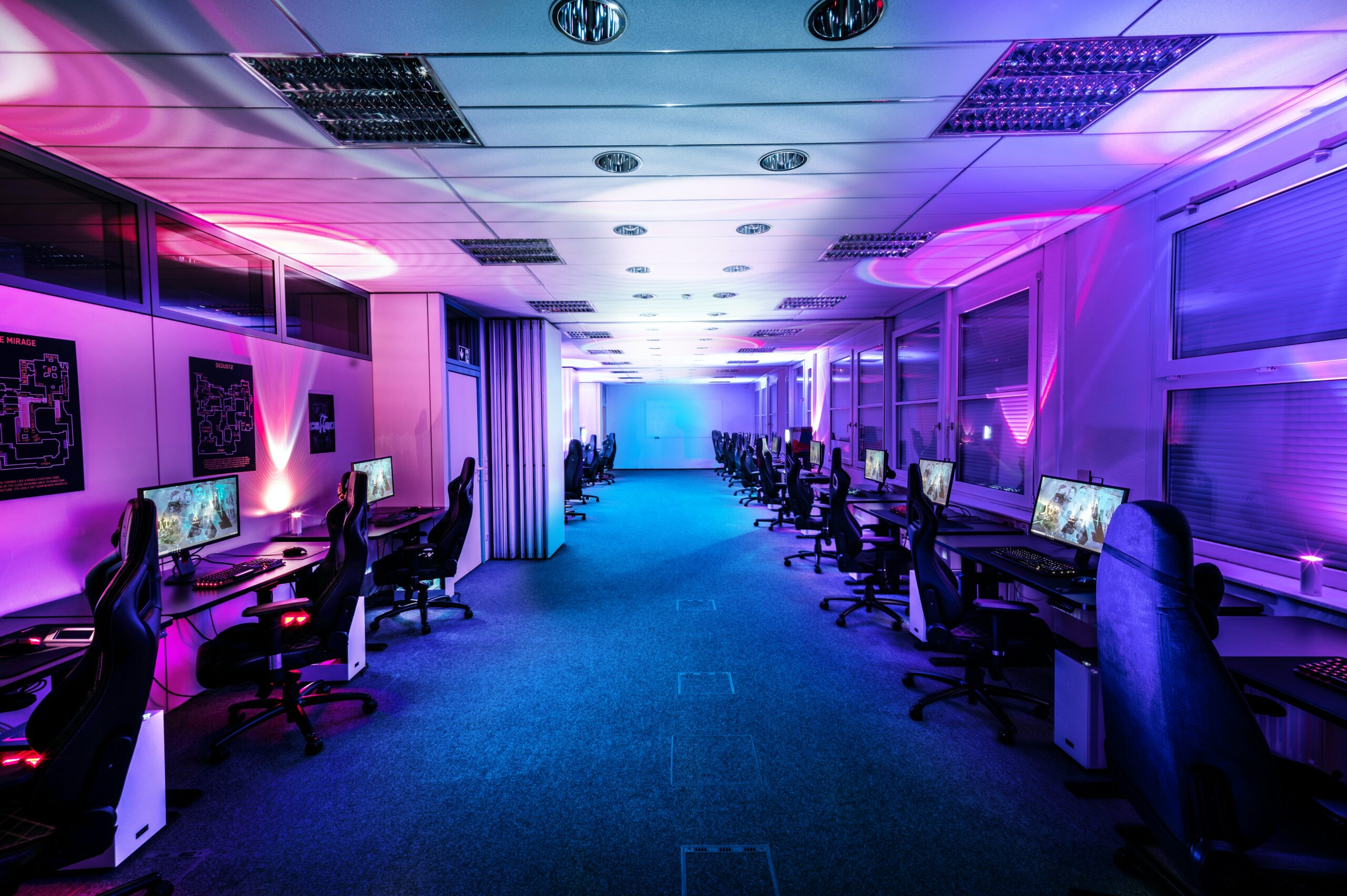It’s no secret that Brazil has long been considered an unlikely source of hope for the global esports scene. After all, the country has never really had a strong presence in the competitive gaming world, despite its well-documented love of video games.
Brazil esports is unlikely source hope
That could be about to change, however, as Brazil is starting to see a surge in interest in esports. This is evident in the growing number of Brazilian teams and players appearing on the international stage, as well as the increasing amount of investment being pumped into the scene by both local and foreign companies.
So what needs to happen for Brazil to become a major player in esports? Here are three key things:
1. More Brazilian teams need to be created and nurtured.
2. Local tournaments need to be better organised and publicised.
3. More investment needs to come into the scene, both from within Brazil and from outside.
If these three things can happen, then there’s no reason why Brazil couldn’t become a powerhouse in the world of esports.
The Brazilian Esports Landscape
Esports has been on the rise in recent years, with Brazil being no exception. The Brazilian esports landscape is ever-changing and offers a unique opportunity for those looking to get involved. However, there are a few key things that need to happen in order for Brazil’s Esports to reach its full potential.
The Brazilian Gaming Market
Brazil’s gaming market is the largest in Latin America and continues to grow rapidly. The country has a large, young population that is increasingly interested in gaming and esports. However, there are many challenges that need to be addressed if Brazil is to become a leading esports nation.
There is currently no centralised body or governance structure for esports in Brazil. This lack of regulation and coordination makes it difficult for businesses and investors to operate in the space. There are also few dedicated esports facilities or venues, which limits the number of events that can be held. Furthermore, Brazilian gamers often face poor internet infrastructure, making it difficult to compete at an international level.

Despite these challenges, there are many reasons to be optimistic about the future of esports in Brazil. The country has a rich history of competitive gaming, dating back to the early days of Counter-Strike 1.6. There are also a number of strong Brazilian teams and players in a variety of games such as League of Legends, Dota 2 and Overwatch. If the right conditions are put in place, Brazil has the potential to become a leading force in global esports.
The Brazilian Esports Market
The Brazilian esports market is one of the fastest growing in the world. According to Newzoo, the total number of esports enthusiasts in Brazil grew from 1.5 million in 2016 to 3 million in 2018, and is expected to grow to 5 million by 2021. This rapid growth is being driven by a number of factors, including the increasing popularity of mobile gaming, the rise of online streaming platforms such as Twitch, and the growing number of established esports organisations and teams in Brazil.
However, despite this rapid growth, the Brazilian esports market faces a number of challenges that need to be addressed in order for it to reach its full potential. These challenges include a lack of government support and investment, a relatively small domestic market for esports products and services, and a lack of infrastructure for supporting professional esports athletes.
In order to address these challenges, it is essential that the Brazilian government invest more in the development of the country’s esports industry. This includes providing financial support to help improve infrastructure and creating tax incentives for businesses that invest in the esports industry. In addition, there needs to be more investment in research and development to create new products and services that can be used by professional gamers and teams. Finally, it is important to increase public awareness about esports through marketing campaigns and education initiatives.
A Growing Esports Scene
Brazil has a growing esports scene, with many tournaments and events being held throughout the country. However, there are a few key things that need to happen in order for Brazilian esports to truly succeed.
First and foremost, there needs to be more investment from both local and international companies. This will help to grow the prize pools for tournaments, which will in turn attract more top players to compete. Additionally, more investment will lead to better production values for events, making them more entertaining to watch.
Secondly, the Brazilian government needs to give esports the same recognition as other traditional sports. This would include providing financial support and establishing regulations and laws that govern the industry. Doing so would help legitimise esports in the eyes of the general public and encourage more people to get involved.
Lastly, there need to be more educational opportunities for aspiring professional gamers. This could take the form of dedicated esports schools or scholarships that cover gaming-related expenses. By making it easier for people to enter the industry, there will be a larger pool of talent to choose from when it comes time to form teams and compete in tournaments.
If these three things can happen, then there is a good chance that Brazilian esports will start to flourish. It may still be some time before it reaches the same level as countries like South Korea or the United States, but with enough dedication and hard work, anything is possible.
A Thriving Gaming Scene
Brazil has a strong history in the traditional sports world, with soccer being the most popular sport by far. The country has won the FIFA World Cup a record five times, and produced some of the greatest soccer players of all time, including Pele, Garrincha, and Ronaldo.
In recent years, however, another type of sport has been gaining popularity in Brazil: esports. Also known as electronic sports, esports are organised video game competitions that typically take place between professional gamers.
Brazilian gamers have been quick to embrace esports, and the country now boasts one of the largest and most active gaming communities in the world. There are numerous Brazilian teams and players in a variety of different games, including first-person shooters (FPS), real-time strategy (RTS), multiplayer online battle arena (MOBA), and fighting games.
In addition to being home to many talented gamers, Brazil also has a thriving esports scene. There are a number of professional teams and organisations, as well as numerous gaming events and tournaments held throughout the country.
The Brazilian government has even taken notice of the growing popularity of esports, and has begun to invest in the development of the industry. In 2018, the city of Sao Paulo hosted the first ever Brazil Game Show – an annual event that is now one of the biggest gaming conventions in Latin America.
With a strong history in traditional sports and a rapidly growing esports scene, Brazil is quickly becoming one of the most important countries in the world for gaming.
The Right Infrastructure
For a long time, Brazil has been considered a sleeping giant in the world of esports. The reason for this is simple: the country has all the necessary ingredients to be a powerhouse in the industry, but it has yet to put them all together.
There are many reasons why Brazil has not reached its potential in esports, but one of the most important is infrastructure. In order to be successful in esports, a country needs to have both a strong internet infrastructure and a robust gaming culture. Brazil has neither of these things.
The internet infrastructure in Brazil is notoriously bad. According to Akamai’s State of the Internet Report, Brazil ranks 109th in the world in terms of average internet speed. This is a huge problem for a country that wants to be competitive in online gaming, which requires low latency and high speeds.
In addition to poor internet speeds, Brazil also lacks a strong gaming culture. This is largely due to the fact that most Brazilian households do not have computers or consoles. In fact, only about 35% of households in Brazil own either one (compared to 80% in the United States). This means that there is simply not as large of a pool of potential gamers in Brazil as there is in other countries.
Despite these challenges, there are some signs that Brazil’s esports scene is beginning to grow. The number of Brazilian households with computers and consoles has been slowly increasing over the last few years, and there are now a number of large esports events being held in the country. If these trends continue, it is possible that someday soon Brazil will finally reach its potential as an esports power player.
The Challenges Facing Brazilian Esports
The Brazilian esports scene is far from the level of Korea or North America, but that hasn’t stopped a passionate and dedicated fanbase from developing. Local tournaments are usually small and filled with amateurs, but there is hope that Brazil’s esports can grow. The country has the potential to be a powerhouse in esports, but faces several challenges.
A Lack of Investment
In order for Brazilian esports to grow and develop, it needs investment. Unfortunately, this is something that the country has been lacking. Compared to other major regions, such as North America and Europe, Brazil has received far less investment in esports. This lack of investment has led to a number of problems.
One of the most obvious problems is that there are fewer professional teams in Brazil than in other regions. This lack of teams makes it harder for talented players to get the opportunity to compete at a high level. As a result, the overall level of play in Brazil is lower than in other regions.
Another problem caused by the lack of investment is that there are fewer events being held in Brazil. This lack of events means that there are fewer opportunities for Brazilian players to showcase their skills and talent. This problem is compounded by the fact that many of the events that are held in Brazil are not open to international players. As a result, Brazilian players often have to travel outside of their country if they want to compete against the best players in the world.
The lack of investment in Brazilian esports is a major problem that needs to be addressed if the country wants its scene to grow and develop. Without investment, it will be very difficult for Brazil to catch up to other major esports regions.
A Lack of Structure
One of the challenges facing Brazilian esports is a lack of structure. There is no centralised organisation that oversees the scene, which can make it difficult for sponsors and investors to get involved.
This lack of structure also makes it hard for players to find consistent work and earn a living from esports. Many players are forced to compete in online tournaments with little to no prize money, and even those who do manage to land sponsorship deals often see very little of the money that their teams make.
Brazilian esports needs a centralised organisation that can bring in sponsors, organise tournaments, and provide players with stable salaries. Until that happens, it is unlikely that the scene will be able to reach its full potential.
A Lack of Awareness
The lack of awareness is one of the main issues that are holding back the growth of esports in Brazil. The majority of people in Brazil are not familiar with the concept of esports, let alone the fact that it is a huge industry with a global following. The lack of awareness means that there is little to no investment coming into the country from sponsors and investors.
Another big challenge facing Brazilian esports is the lack of infrastructure. There are very few dedicated esports venues in the country and the majority of tournaments are held online. This makes it difficult for players to practise and improve their skills. It also makes it difficult for teams to compete at a high level, as they often have to travel long distances to participate in tournaments.
Lastly, another challenge facing Brazilian esports is the language barrier. Most of the top esports games are played in English, which makes it difficult for Brazilian players to compete at an international level. This barrier means that many Brazilian players are not able to sign with foreign teams or participate in global tournaments.
Conclusion
It is unlikely that Brazil’s esports industry will flourish without significant investment from outside the country. The current infrastructure is insufficient to support a large-scale industry, and the government has shown little interest in supporting the development of esports. Private companies are unlikely to invest heavily in an industry that is still considered niche, especially given the high risks involved.
The only hope for Brazil’s esports industry is if international companies take an interest in investing in and developing the country’s infrastructure and scene. However, given the current state of affairs, this seems unlikely.

